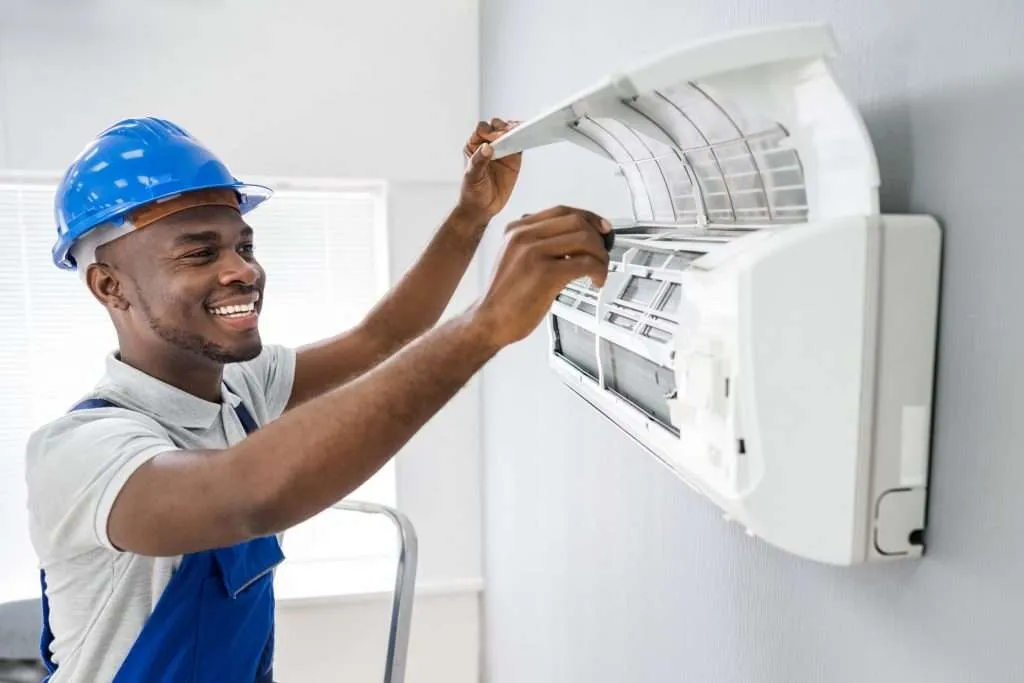Modern air conditioning units usually last 15 to 20 years, depending on maintenance, usage, and climate. Regular maintenance like changing filters and checking parts can help them last longer. Today’s units are more energy-efficient and reliable than older ones.
They offer lasting comfort in homes with proper installation and upkeep, along with the top AC repair from Beltway Air Conditioning & Heating in Arbutus.
What Is the Average Lifespan of AC Units?
More recent air conditioners should easily last a decade or two when properly maintained. Although each unit is unique, most systems will last 15 to 20 years when properly maintained.
Several factors, including maintenance habits, climate, and installation quality, play a great role in determining the unit’s lifespan.
Factors That Affect the Lifespan of AC Units
The lifespan of a new air conditioning (AC) system depends on several factors. The better one knows the factors, the more informed homeowners can make their AC maintenance decisions.
Quality of the Air Conditioning Unit
Quality AC units are longer lasting because they are constructed of higher quality materials and craftsmanship. Quality brands provide tried and tested units with a warranty.
A more long-lasting unit will be more expensive upfront, but it will be less expensive in the long run with fewer repair and replacement requirements. Reading reviews and researching can make it a simpler choice.
Frequency of Maintenance and Servicing
Maintenance habits dictate the AC’s efficiency and lifespan. Simple measures such as replacing filters and having tune-ups minimize wear and tear.
Keeping up to date with inspections ensures potential problems are detected early, keeping the system running well.
Usage Patterns and Energy Load
AC units wear out quicker with heavy use and high energy usage. Homeowners can adjust thermostats and use programmable thermostats to increase energy efficiency and reduce system stress.
Monitoring usage patterns can also avoid overloading the unit, thus extending its lifespan. By adjusting these settings, homeowners can maintain their AC in a more efficient state, reducing the likelihood of premature wear and repair.
Environmental Factors and Location
Environmental factors such as high humidity and air pollution greatly impact an AC’s lifespan.
The outdoor climate and air quality determine how often the unit runs and its risk of damage. Using protective covers for outdoor units can shield them from severe weather.
Installation Quality and Setup
Installation is most important to the AC’s performance. It improves airflow and avoids issues that shorten its lifespan.
Having certified professionals install the system guarantees it’s installed correctly and up to code in the area.
Signs That Your AC Unit Is Nearing the End of Its Lifespan
Even with proper maintenance, AC units will eventually wear out. Recognizing the signs of an aging system can help homeowners and business owners plan for a replacement before a complete breakdown occurs.
- Frequent Repairs: If an AC unit requires constant repairs, it may be more cost-effective to replace it rather than continue fixing recurring issues.
- Reduced Cooling Efficiency: If an AC unit struggles to keep the home cool or takes longer to reach the desired temperature, it may be losing efficiency.
- Higher Energy Bills: As AC units age, they become less efficient, leading to increased energy consumption and higher utility bills.
- Strange Noises or Odors: Unusual sounds, such as grinding, squealing, or banging, can indicate mechanical issues. Similarly, musty or burning smells can be a sign of electrical problems or mold buildup.
- Poor Air Quality: If an AC unit is not properly filtering air, it can lead to increased dust, allergens, and humidity inside the home.
- Refrigerant Leaks: Low refrigerant levels can cause the AC unit to struggle to cool the home. If the system uses outdated refrigerants like R-22, it may be better to replace the unit with a modern, energy-efficient model.
How to Extend the Lifespan of an AC Unit?
While all AC units have a finite lifespan, there are several steps homeowners can take to maximize their longevity.
- Schedule Regular Maintenance
Having a professional HVAC technician inspect and service the AC unit at least once a year can prevent major issues.
- Change Air Filters Regularly
Dirty air filters can restrict airflow, making the AC unit work harder and reducing its efficiency. Filters should be replaced every one to three months, depending on usage and indoor air quality.
- Keep the Outdoor Unit Clean
For central AC systems, the outdoor condenser unit should be kept free of dirt, leaves, and debris. Cleaning the area around the unit can improve airflow and prevent overheating.
- Use a Programmable Thermostat
A smart or programmable thermostat can help regulate temperatures more efficiently, reducing unnecessary strain on the AC unit.
- Ensure Proper Insulation
Good home insulation reduces the workload on an AC unit by keeping cool air inside and preventing heat from entering.
- Avoid Overworking the System
Setting the thermostat at a moderate temperature and using ceiling fans can help reduce strain on the AC unit.
- Check for Duct Leaks
Leaky ducts can waste cooled air and force the AC system to work harder. Sealing any leaks can improve efficiency and extend the life of the unit
Conclusion
Whether you’re looking to extend your system’s lifespan or replace an aging unit, Beltway Air Conditioning & Heating in Arbutus is here to help. Trust professional AC services to keep your home comfortable year-round!
- Beltway Air Conditioning, Heating & Plumbing
- 1587 Sulphur Spring Rd #109, Arbutus, MD 21227
- +14437271399






